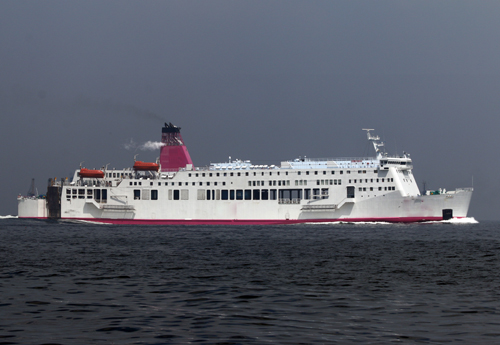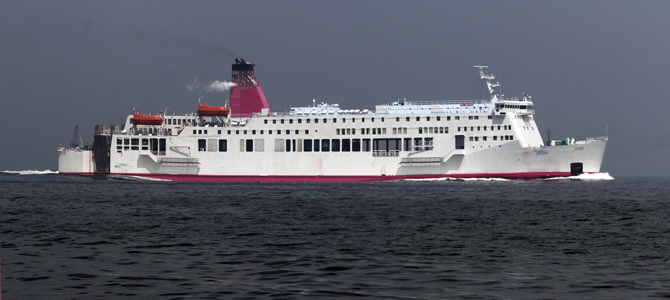IMO Conference adopts guidelines to aid the process of reducing accidents by addressing whether a ships is fit for purpose in its intended role.

The Manila Statement acknowledges the urgent need to enhance the safety of ships carrying passengers on non-international voyages and urges States to review and update national regulations in relation to their passenger ferries and to apply the guidelines, to address marine casualties and incidents involving such vessels.
The International Maritime Organization (IMO) Conference on the enhancement of safety of ships carrying passengers on non-international voyages, held in Manila, the Philippines, on 24 April 2015, has adopted guidelines to aid the process of reducing the mounting toll of accidents involving such vessels by addressing the question of whether a ship is fit for purpose in its intended role.
The “Manila Statement”, adopted by the Conference, acknowledges the urgent need to enhance the safety of ships carrying passengers on non-international voyages in certain parts of the world and urges States to review and update national regulations in relation to their passenger ferries and to apply the guidelines, in order to address the continuing unacceptable loss of life and damage to the environment and property due to marine casualties and incidents involving such vessels.
Speaking at the closing session of the Conference, which was hosted by the Government of the Philippines, IMO Secretary-General Koji Sekimizu said that domestic ferry operations played a crucial role in the movement of people and goods, and sometimes represented the only possible and/or reasonably affordable means of transport.
“The public expects safety standards on domestic passenger ferries to be as strong as those on international vessels,” Mr. Sekimizu said. “The perils of the sea do not distinguish between ships engaged on international or non-international voyages and the protection of life at sea is a moral obligation. Those travelling by domestic ferries should enjoy the highest practicable standard of safety irrespective of their citizenship.”
The Manila Statement highlights that the safety of domestic ferries is a shared responsibility between and among Governments; local authorities; ship-owners, ship-managers, ship-operators; shipboard personnel; maritime education and training institutions; classification societies and organizations which Governments authorize to survey and certify domestic ferries for compliance with the applicable laws, regulations and rules; insurance providers; port authorities, port terminal owners and operators; and the public and civil society as users of the services provided.
“Casualties and incidents involving domestic ferries can be avoided if adequate laws, regulations and rules are developed and effectively implemented and enforced,” Mr. Sekimizu said.
The Conference was attended by representatives of 13 Member States as well as observers from international organizations.
The Manila statement strongly recommends the use of the Guidelines on the safe operation of coastal and inter-island passenger ships not engaged in international voyages. The guidelines address issues relating to: the purchase of a second hand ship intended to enter into service as a domestic passenger ship; a change in operating limits; the conversion or modification of a ship before the ship enters into service as a domestic passenger ship; passenger counting and voyage planning. The guidelines can also be used to check the operation of ships which are already providing passenger services and the ones relating to passenger counting and voyage planning in their daily operations.
The statement also urges States who need technical assistance on matters relating to the operation of domestic ferries to seek such assistance from IMO or from other States.
The outcome of the Philippines Conference will be reported to IMO’s Maritime Safety Committee, Technical Cooperation Committee and Sub-Committee on Implementation of IMO Instruments.
The Conference was organized in the context of an on-going programme conducted by IMO, through its technical cooperation programme, to improve the safety of sea and inland waters transport operations in several countries and regions, while recognizing that the regulatory framework of domestic passenger ferries varies considerably from place to place.
Since 2006, activities relating to domestic ferries have been pursued in partnership with the international non-governmental organization Interferry, including a series of fora on the safety of domestic ferries in the East Asia sub-region and for Pacific Island Countries and Territories, as well as the implementation of a national pilot project in Bangladesh, including the development of specific training programmes.
The Conference on the enhancement of safety of ships carrying passengers on non-international voyages was attended by representatives from Australia, Cambodia, Canada, China, Indonesia, Japan, Malaysia, New Zealand, Norway, Papua New Guinea, the Philippines, and the Republic of Korea; the Secretariat Of The Pacific Community; observers from the International Chamber Of Shipping (ICS), the International Association Of Classification Societies (IACS), Interferry and the Worldwide Ferry Safety Association (WFSA); and observers from the World Maritime University (WMU) and the University Of Strathclyde, United Kingdom.
